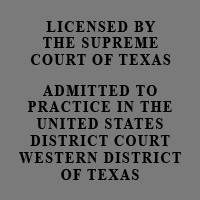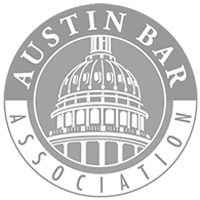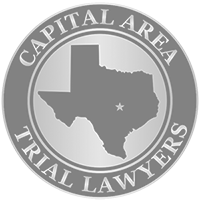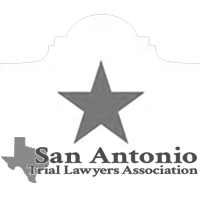Pharmaceutical Marketing Fraud Whistleblower Lawyer Handles Drug Marketing Fraud Qui Tam Lawsuits by Pharmaceutical Marketing Fraud Whistleblower Lawyer
Pharmaceutical marketing representatives and pharmaceutical professionals that are aware of fraudulent off label drug marketing practices, fraudulent drug marketing, illegal drug kickbacks, or price fixing are needed to expose pharmaceutical marketing fraud. If you are aware of a pharmaceutical company that is committing pharmaceutical marketing fraud, please feel free to contact Pharmaceutical Marketing Fraud Whistleblower Lawyer Jason Coomer via e-mail message or use our submission form to confidentially inquire about a potential pharmaceutical whistleblower qui tam lawsuit.
Drug Company and Medical Device Company Marketing Fraud and Schemes Target Physicians with False Information to Promote Dangerous and Unsafe Drugs and Medical Devices by Off Label Marketing and Pharmaceutical Whistleblower False Claims Act Lawyer Jason S. Coomer
In the United States, the cost of health care continues to increase creating significant problems for many Americans and the United States Economy. A significant cause of this increase in medical costs is drug company marketing representative and medical device marketing representative healthcare fraud that is encouraging the use of off label marketing of drugs and medications and the use of unsafe medical devices and drugs.
Pharmaceutical Representatives and Drug Marketing Techniques
Pharmaceutical representatives, medical device marketing representatives, and marketing fraud are manipulating physicians to use more expensive and less safe drugs. From providing false information to using young attractive and charismatic drug representatives and free gifts, drug companies are using advanced marketing techniques to push physicians to use new drugs and products on patients. When these marketing techniques are used to push a dangerous drug or to push a drug or medical device for off-label purposes, it can be dangerous for the patient's health as well as can be the basis for a qui tam lawsuit or other lawsuit.
Free gifts, lunches, dinners, and drug samples from drug companies can often influence a physician to use a new, more expensive, and less safe drug. A recent article, Prescribing Under the Influence By E. Haavi Morreim, thoughtfully discusses the potential influence direct or indirect impact that free meals and gifts from drug representatives can have on physicians. These freebies combined with false marketing materials can manipulate doctors into prescribing drugs for off-label purposes.
Another technique that drug companies use to push their new drugs and implants include hiring attractive and charismatic drug representatives to push physicians through a advanced script that falsely presents a new medication or medical device as better and more safe than it actually is. The drug representatives are usually highly articulate and are able to use the skewed research from the drug marketing departments combined with befriending or flirting with the physician to push the doctor to use their company's new product regardless of safety or expense.
Through experience the drug marketing departments are also often able to determine what best motivates a physician and use advanced marketing techniques to push the physician without the doctor even realize they are being manipulated. These techniques include providing skewed data from the drug company to a physician that relies strongly on science and research to make their decisions to inviting a physician that is interested in professional and social activities a speak on at a professional lecture.
Health Care Fraud and Pharmaceutical Off Label Fraud Law Suits (Fraud Costs Tax Payers and Consumers Hundreds of Billions of Dollars)
Health Care Expenses in the United States have increased to be over Two Trillion ($2,000,000,000,000.00) Dollars each year. This amount continues to rise as pharmaceutical companies have made large profits. One of the reasons that the pharmaceutical companies are making such large profits is that they have begun aggressive marketing campaigns that not only promote drugs for the medication's intended purpose, but aggressive push doctors to prescribe drugs for off label purposes.
From a taxpayer stand point, health care fraud costs taxpayers between $60 billion and $100 billion each year. This cost increases dramatically when you include other forms of health care fraud including insurance fraud and fraud on patients.
Off Label Marketing Fraud Law Suits, Pharmaceutical Marketing Fraud Lawsuits, Health Care Fraud Law Suits, and Pharmaceutical Whistleblower Qui Tam Law Suits
The Department of Justice has been cracking down on Fraud and False Claims including Medicare Fraud, Tricare Fraud, Nursing Home Fraud, Hospice Fraud, and other Health Care Fraud. Below is an update on recent Department of Justice recoveries.
Pfizer to pay record $2.3B penalty over promotions Repeat offender Pfizer paying record $2.3B settlement for illegal drug promotions By Devlin Barrett, Associated Press Writer On Wednesday September 2, 2009, 3:47 pm EDT
"WASHINGTON (AP) -- Federal prosecutors hit Pfizer Inc. with a record-breaking $2.3 billion in fines Wednesday and called the world's largest drug maker a repeating corporate cheat for illegal drug promotions that plied doctors with free golf, massages, and resort junkets."
Announcing the penalty as a warning to all drug manufacturers, Justice Department officials said the overall settlement is the largest ever paid by a drug company for alleged violations of federal drug rules, and the $1.2 billion criminal fine is the largest ever in any U.S. criminal case. The total includes $1 billion in civil penalties and a $100 million criminal forfeiture.
More Than $1 Billion Recovered by Justice Department in Fraud and False Claims in Fiscal Year 2008
WASHINGTON – The United States secured $1.34 billion in settlements and judgments in the fiscal year ending Sept. 30, 2008, pursuing allegations of fraud against the federal government, the Justice Department announced today. This brings total recoveries since 1986, when Congress substantially strengthened the civil False Claims Act, to more than $21 billion.
"Now, more than ever, it is crucial that taxpayer dollars aren't lost to fraud," said Gregory G. Katsas, Assistant Attorney General for the Department’s Civil Division. "The billion dollars collected this year is only part of the story. By rooting out fraud and vigorously pursuing it, the Department, with the help of concerned citizens who report fraud in hotline calls and in qui tam complaints, undoubtedly saves the country many times that amount in aborted schemes and misconduct."
Assistant Attorney General Katsas also paid tribute to Senator Charles Grassley of Iowa and Representative Howard L. Berman of California who sponsored the 1986 amendments to the False Claims Act, the government's primary weapon to fight government fraud. "Without this important legislation strengthening the Act and, in particular, the qui tam provisions which encourage private citizens to uncover government fraud, such recoveries would not have been possible."
Almost 78 percent of this year’s recoveries are associated with suits initiated by private citizens (known as "relators") under the False Claims Act's qui tam provisions. These provisions authorize relators to file suit on behalf of the United States against those who have falsely or fraudulently claimed federal funds. Such cases run the gamut of federally funded programs from Medicare and Medicaid to defense procurement contracts, disaster assistance loans and agricultural subsidies. Persons who knowingly make false claims for federal funds are liable for three times the government’s loss plus a civil penalty of $5,500 to $11,000 for each claim.
Relators recover 15 to 25 percent of the proceeds of a successful suit if the United States intervenes in the qui tam action, and up to 30 percent if the government declines and the relator pursues the action alone. In fiscal year 2008, relators were awarded $198 million. (This figure does not include relator shares awarded after Sept. 30, 2008.)
As in the last several years, health care accounted for the lion's share of fraud settlements and judgments–$1.12 billion. This number includes both qui tam claims and those initiated by the United States. The Department of Health and Human Services reaped the biggest recoveries, largely attributable to its Medicare program and the federal/state Medicaid program which funds health care for the needy. Recoveries were also made by the Office of Personnel Management which administers the Federal Employees Health Benefits Program, the Department of Defense for its TRICARE insurance program, the Department of Veterans Affairs and others.
The largest health care recoveries came from pharmaceutical companies and related entities. Settlements with Cephalon Inc., Merck & Co. and CVS Caremark Corp. accounted for more than $640 million. In addition to federal recoveries, these pharmaceutical fraud cases returned $430 million to state Medicaid programs.
The Civil Division’s investigation of the pharmaceutical industry is part of a Department-wide effort. Typical allegations include "off-label" marketing, which is the illegal promotion of drugs or devices that are billed to Medicare and other federal health care programs, for uses that were neither found safe and effective by the Food and Drug Administration nor supported by the medical literature; paying kickbacks to physicians, wholesalers and pharmacies to induce drug or device purchases; establishing inflated drug prices knowing that federal health care programs use these prices to reimburse providers, then marketing the "spread" between the federal reimbursement and the provider’s lower cost to induce drug purchases; and knowingly failing to report the company’s true "best price" for a drug to reduce rebates owed to the Medicaid program.
Lilly Pharmaceuticals - $438 million under the False Claims Act In January of 2009, Eli Lilly agreed to pay a total of $1.4 billion to resolve Federal, state and criminal charges in relation to the off-label marketing of the drug Zyprexa. Of this sum, $438 million went to satisfy Federal False Claims Act charges, $361 million was divided among the states, and $515 million was paid as a criminal fine.
Drug Marketing Fraud Law Suits, Price Fixing Qui Tam Lawsuits, Kickback Marketing Scam Lawsuits, Pharmaceutical Marketing Fraud Lawsuits, and Pharmaceutical Whistleblower Qui Tam Law Suits
Taketa-Abbott Pharmaceutical Pharmaceutical Products Inc. -- $559,483,560 under the False Claims Act In October 2001, TAP Pharmaceutical Products Inc. agreed to pay $875 million to resolve criminal charges and civil liabilities in connection with fraudulent drug pricing and marketing of Lupron, a drug sold for the treatment of prostate cancer. Of this amount, $559,483,560 was recovered under the False Claims Act. In addition, TAP pled guilty to a conspiracy to violate the Prescription Drug Marketing Act and paid a $290 million criminal fine, the largest criminal fine ever in a health care fraud prosecution. Under the Lupron scheme, TAP gave doctors kickbacks by providing free samples with the knowledge that the physicians would bill Medicare and Medicaid $500 per dose. At the time the Lupron fraud was discovered, Lupron accounted for 10% of the money spent on prescription drugs under Medicare Part-A. As part of the settlement, TAP entered into what prosecutors called a "sweeping" corporate integrity agreement.
Schering Plough -- $255,000,000 under the False Claims Act In August of 2008, Schering-Plough agreed to pay a total of $435 million to resolve criminal charges and civil liabilities in connection with illegal sales and marketing programs for brain tumor medication Temodar, and Intron-A which is used in the treatment of bladder cancer and hepatitis C. The Schering settlement also covers best price violations related to Claritin RediTabs (an antihistamine), and K-Dur, which is used in the treatment of ulcers.
Serono-- $567,000,000 under the False Claims Act In October of 2005, Serono agreed to pay $704 million to settle a fraud case involving Serostim, a human growth hormone product used to fight AIDS-related wasting. The charges involved kickbacks to doctors for prescribing Serostim, kickbacks to specialist pharmacies for recommending Serostim, illegal off-label marketing of the drug, and non-FDA approved diagnosis equipment designed to spur more Serostim prescriptions. Serostim cost as much as $20,000 for a three-month regime. Of the total $704 million settlement, $567 million is earmarked to settle federal and state civil claims ($305 million federal), with $136.9 million paid as a related criminal fine.
Off Label Drug Marketing Fraud Qui Tam Claim Lawyer, Pharmaceutical Marketing Fraud Qui Tam Claim Lawyer, and Pharmaceutical Whistleblower Qui Tam Lawyer (Off Label Marketing and Pharmaceutical Whistleblower False Claims Act Law Suits)
Through Whistle Blower Lawsuits, Qui Tam Lawsuits, and other Health Care Fraud Lawsuits, hundreds of billions of dollars have been recovered from dishonest pharmaceutical companies, health insurance companies, health providers, individuals and organizations that have committed health care fraud and stolen large amounts of money from the government.
It is extremely important that Whistle Blowers continue to expose fraudulent marketing practices, billing practices and unnecessary treatments that cost hundreds of billions of dollars. Off Label Drug Marketing Fraud Lawyer Jason Coomer works on Off Label Pharmaceutical False Claims Act Lawsuits and commonly works with other Pharmaceutical Whistleblower Lawyers, Qui Tam Whistleblower Lawyers, and Health Care Fraud Whistleblower Lawyers.
If you are a pharmaceutical whistleblower that is aware of fraudulent off label drug marketing practices by a pharmaceutical marketing department, feel free to contact Pharmaceutical Off Label Drug Marketing Fraud Whistleblower Lawyer Jason Coomer via e-mail message or our submission form about a potential pharmaceutical whistleblower, off label pharmaceutical marketing fraud, or other pharmaceutical whistleblower qui tam lawsuit.
Off Label Marketing Fraud Whistleblower Law Suits, Pharmaceutical Marketing Fraud Whistleblower Lawsuits, Health Care Fraud Whistleblower Law Suits, and other Federal False Claims Act Whistleblower Law Suits
If you are aware of a large health care company or individual that is defrauding the United States Government out of millions or billions of dollars, contact Health Care Fraud lawyer Jason Coomer. As a Texas Health Care Fraud Lawyer, he works with other powerful qui tam lawyers that handle large Health Care Government Fraud cases. He works with San Antonio Health Care Fraud Lawyers, Dallas Health Care Fraud Lawyers, Houston Medicare Fraud Lawyers, and other Texas Health Care Fraud Lawyers as well as with Health Care Fraud Lawyers throughout the nation to blow the whistle on fraud that hurts the United States.
If you are a pharmaceutical whistleblower that is aware of fraudulent off label drug marketing practices, drug price fixing, drug kickbacks, or other pharmaceutical fraud by a pharmaceutical marketing department, health care provider, or drug company, feel free to contact Pharmaceutical Off Label Drug Marketing Fraud Whistleblower Lawyer Jason Coomer via e-mail message or our submission form about a potential pharmaceutical whistleblower, off label pharmaceutical marketing fraud, or other pharmaceutical whistleblower qui tam lawsuit.
Feel Free to Contact Us with any Questions
Associations




